UK floods: ministers to quiz insurers over claims
Final floods damage bill could cost insurers as much as £1bn, prompting fears of a rise in premiums
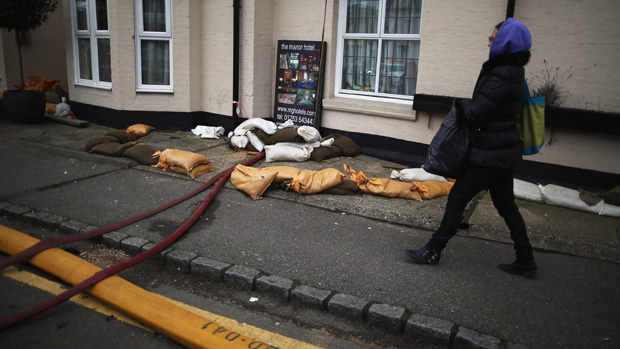
A free daily email with the biggest news stories of the day – and the best features from TheWeek.com
You are now subscribed
Your newsletter sign-up was successful
MINISTERS have summoned insurance bosses to Downing Street today to discuss their response to the recent floods.
Prime Minister David Cameron has urged the industry to deal with flood claims as quickly as possible after thousands of properties in the south of England were damaged in the recent severe weather.
The Association of British Insurers says its members have paid out £14m to flood victims since 23 December, with households receiving between £500 and £3,000. Around £24m has also been spent on temporary accommodation, which includes hotels, bed and breakfasts and rented homes.
The Week
Escape your echo chamber. Get the facts behind the news, plus analysis from multiple perspectives.

Sign up for The Week's Free Newsletters
From our morning news briefing to a weekly Good News Newsletter, get the best of The Week delivered directly to your inbox.
From our morning news briefing to a weekly Good News Newsletter, get the best of The Week delivered directly to your inbox.
A further 2,000 claims adjusters are said to be "ready and waiting" to assess damage at properties once flood waters have subsided.
Forecasters are predicting a drier week, but have warned of further heavy rain in some parts of the UK on Thursday. Two severe flood warnings remain in place for the South West.
Insurance industry leaders will be expected to give a briefing about the steps being taken to help flood victims and address concerns that some customers could have trouble obtaining flood insurance in the future.
The final bill for repairing or replacing flood damaged property could cost insurers as much as £1bn, says the Daily Telegraph, prompting fears that household premiums will have to rise.
A free daily email with the biggest news stories of the day – and the best features from TheWeek.com
Simon Gompertz, the BBC's personal finance correspondent, said insurers must renew policies unless defences are inadequate, but they can push prices up to unaffordable levels.
Next year a new agreement should make flood cover easier to get for many households – but businesses could find flood insurance much harder to obtain, he said.
Cabinet Office ministers Oliver Letwin and Jo Johnson will chair the meeting, which will now be held monthly, with chief executives from companies such as Aviva, Direct Line Group and Axa.
It comes one day after the Prime Minister unveiled a £10m fund to help businesses recover from the floods.
Lord Stern: floods and storms are signs of climate change
14 February
THE devastating floods and storms that have lashed Britain recently are the result of climate change and demonstrate the urgent need to cut carbon emissions, Lord Stern has warned.
The cross-bench peer says the international pattern of extreme weather is a clear indication of mankind's influence on the environment and the world needs to continue to implement low-carbon policies to reduce the chance of greater tragedies in the future, says Stern, author of the 2006 report on the economics of climate change.
Writing in The Guardian, he points out that since 2000 the UK has experienced four of the five wettest years and also the seven warmest years ever recorded . This is explained by a clear body of evidence showing that a warmer atmosphere contains more water and causes more intense rainfall, he says. When combined with higher sea levels in the English Channel, the risk of flooding increases.
"If we do not cut emissions, we face even more devastating consequences, as unchecked they could raise global average temperature to 4C or more above pre-industrial levels by the end of the century," he writes.
"The shift to such a world could cause mass migrations of hundreds of millions of people away from the worst-affected areas. That would lead to conflict and war, not peace and prosperity."
Stern's warning comes as the UK prepares for more storms later today, with 17 severe flood warnings now in place.
Meanwhile, Cornwall Wildlife Trusts has reported an "unprecedented" number of reports of dead seabirds and marine mammals since the storms began. A total of 29 birds, including puffins and guillemots, 14 seals and nine dolphins were recorded dead on the shore in the last four weeks, and the numbers are still rising.
The high tides and heavy rain have flooded many inland areas where seals rest, with reports of seal pups being washed into harbours, onto promenades and even into people's gardens.
Staff at the Cornish Seal Sanctuary in Gweek are currently housing 48 "confused seals", says the Western Morning News, but are unable to release them back into the wild until the weather calms down.
UK storms: 100mph winds blow down trees, trucks and people
14 February
WINDS of more than 100mph have caused travel chaos across England and Wales and left around 80,000 homes without power.
On a day described as "Wild Wednesday", severe storms knocked down trees, overturned trucks and disrupted transport. Motorways were flooded, major road bridges closed and many railway lines were suspended.
The Met Office yesterday issued its first "red warning" of the winter, meaning there could be a risk to life. In Manchester city centre, people were literally blown off their feet, while one man in Cardiff was hit by a falling road sign. Another man in his 70s died after being electrocuted while trying to move a tree that brought down power cables near Chippenham.
The winds were so severe last night that Virgin trains urged customers to "abandon travel". Major disruption between London Paddington and Reading continues and trains have been cancelled in parts of Yorkshire and north-east England.
Forecasters are predicting some respite from stormy weather today but another Atlantic low could bring gales of more than 80mph from Friday onwards.
Meteorologists predict three storms fast approaching the UK will bring a month's rain in two days, with 16 severe flood warnings still in place for Berkshire, Surrey and Somerset.
Up to 3.8cm rain is forecast for the South, with 7cm by Friday in the West, Wales, Scotland and Northern Ireland.
Around 2,000 soldiers were on the ground helping with flood relief last night and another 3,000 were on standby, according to the Daily Telegraph. Major General Patrick Sanders, who is in charge of the soldiers currently helping the flood response, described the floods as "an almost unparalleled natural crisis".
Officials are working to restore power for tens of thousands of households. The Energy Networks Association, representing UK energy companies, said that the pylons and wires were "very resilient" to strong winds but airborne objects – such as uprooted trees – are causing power lines to come down.
UK floods: more storms to bring strongest winds of the winter
12 February
STORMY weather could bring the strongest winds of the winter to beleaguered Britain later today, while a month's worth of rain is expected to fall in parts of southern England before the end of the week.
Winds could exceed 100mph around the coast of west Wales and reach 80mph in parts of England, according the BBC. The Met Office has also forecast snow in northern and western parts of the UK – but not the South West.
More than 1,000 properties have flooded over the last week and 6,000 have been affected in the last two months, and there are still 16 severe flood warnings in place, mainly in the South East.
The Environment Agency has warned that more homes will be flooded as rivers in Herefordshire and Worcestershire continue rising over the next few days.
Houses continue to be evacuated in Surrey, with emergency workers - including 250 soldiers - distributing 30,000 sandbags across the county overnight. Surrey Police described the flooding as "unprecedented".
Meanwhile, commuters face major disruptions on several rail services, with many passengers advised not to travel.
Prime Minister David Cameron yesterday said that "money is no object" as he declared the floods a national emergency and staked his personal authority on rebuilding damaged regions.
However, BBC environment analyst Roger Harrabin says this is "not a blank cheque for flood defences". Harrabin points out that this government's flood spending is lower than the previous Labour government, although total spending is higher thanks to local councils.
Leaders from all parties have come under fire from flood victims for using the crisis to score cheap political points.
Cameron, Nigel Farage and Ed Miliband (pictured below) are among those who have posed for the cameras while wading through water-filled streets in their wellies.
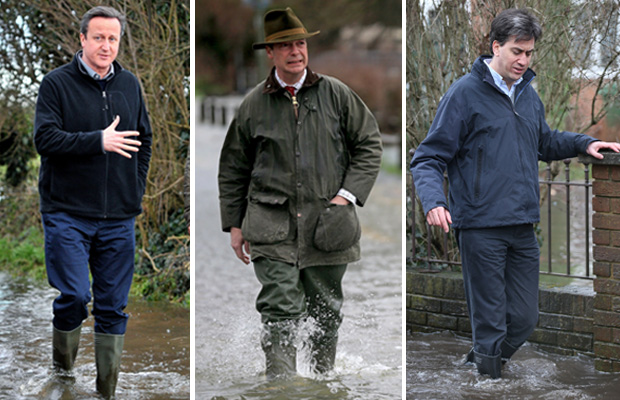
Miliband was reportedly heckled by villagers and accused of being a "Westminster flood tourist" by Conservative MP Alok Sharma in Purley-on-Thames in Berkshire, while Environment Secretary Owen Paterson was mocked by flood-stricken residents for forgetting his wellies altogether.
UK faces day of 'kitchen sink weather' as floods continue
11 February
THOUSANDS more people are at risk of flooding in Britain today as forecasters predict a "kitchen sink day of weather".
More homes along the River Thames were evacuated yesterday as floodwaters rose, with residents in one Berkshire village comparing the scenes to "a horror movie".
But there is no respite in sight and severe weather is expected to hit flood-stricken parts of the UK again today. There are still 14 severe flood warnings in place in Berkshire and Surrey, while two remain in Somerset. The Met Office has also issued four yellow warnings – meaning "be aware" – for rain, ice and snow for parts of the UK.
BBC weather forecaster Laura Gilchrist described it as a "kitchen sink day of weather", with a bit of everything expected. Deep areas of low pressure on Wednesday could potentially bring the strongest winds so far this winter, while Scotland, northern England and Northern Ireland could see snow.
Scientists have told Sky News that groundwater levels are now so high that parts of Britain face a serious risk of flooding for weeks or even months to come.
Even if the rain stopped today, so much water is soaking through the soil that levels are likely to keep rising for another two months, said Andy McKenzie, a groundwater scientist at the British Geological Survey.
As Prime Minister David Cameron tours the South West visiting flood victims, the Daily Mail has launched a petition urging government to divert some of the UK's £11bn foreign aid budget to the crisis.
Lord Smith, chairman of the Environment Agency, appeared on BBC Two's Newsnight yesterday, defending the organisation from ongoing criticism that it has not done enough to help flood-stricken areas.
He admitted that "we have all made mistakes", but also suggested that flooded residents were partly to blame by choosing to live in high-risk regions.
Smith again criticised Treasury spending rules which, he claimed, meant the agency was not allowed to spend any more money on dredging the flood-hit Somerset Levels.
UK floods: Thames sets record as threat levels rise
10 February
THE Environment Agency has issued severe flood warnings - meaning there is danger to life - for 16 areas in the south of England as further rain is forecast across the UK.
Fourteen of these warnings are for areas in the Thames Valley, with several parts of the Thames reaching record water levels. Forecasters said today would be the driest day of the week, but rivers could continue to rise as previous rainfall works its way downstream.
The wet weather will return later this week and Peter Sloss, of the BBC Weather Centre, believes many areas will see a further 20-40mm of rain by the end of Thursday.
Armed forces personnel were in the Thames Valley area last night building a 60cm-high defence in order to divert the river away from homes.
Commuters faced disruption today as National Rail reported flooding at several locations between Staines and Windsor & Eton Riverside stations. Trains in the area were cancelled and replacement buses were "not available".
Meanwhile, around 20 residents had to be rescued over the weekend by firefighters from a caravan park next to the River Thames near Northmoor, Oxfordshire, which has become flooded for the second time in five weeks.
The flooding misery comes as Communities Secretary Eric Pickles admitted that the government "made a mistake" in not dredging the flood-hit Somerset Levels.
Pickles apologised unreservedly to those who had been flooded, and told the BBC: "We made a mistake, there's no doubt about that. We perhaps relied too much on the Environment Agency's advice. I am really sorry that we took the advice... we thought we were dealing with experts."
Writing in The Guardian, the agency's embattled boss, Lord Smith, has retaliated at the mounting criticism and accused ministers of "playing politics" with the flood crisis.
He said the Environment Agency had protected some 1.3 million homes from flooding and blamed the Treasury for limiting its flood defence work.
'Monster' storm to bring huge waves and more flooding woe
7 February
THE south of England is preparing for another battering from storms this weekend, with 80mph winds, huge waves and more flooding misery predicted.
Surf forecasters describe the approaching storm as an "absolute monster" and say waves are likely to reach 10.7m – higher than in any other storms so far this year.
Meanwhile, work on the damaged section of railway at Dawlish in Devon continues. A section of track, where the line runs along a coastal wall, has been left dangling above the sea after land was washed away.
The Daily Telegraph claims the Environment Agency last month shelved work on the ruined section of track so that it could carry out a survey on the effect it would have on birdlife. Lord Berkeley, a former rail industry executive, suggested that the Environment Agency was "looking after birds before humans".
However, the agency denied the claims, saying it did not "recognise the description of the recent meeting with Network Rail and peers".
The agency's beleaguered chairman, Lord Smith of Finsbury, will visit the Somerset Levels today for the first time since the storms left 25 square miles under water and flooded dozens of homes and farms.
Another night of heavy rain overwhelmed local flood defences in the village of Moorland in Somerset and this morning the Royal Marines were drafted in to assist with the evacuation of residents from around 80 properties.
On a brighter note, the Met Office is predicting calmer conditions on Sunday and Monday in the wake of the latest storm. But this will be followed by a "deep depression" moving in from the west in the early hours of Tuesday, bringing more wind and rainfall.
A Met Office spokeswoman said: "The concerning thing tomorrow is the wind in Cornwall, Devon and South Wales in particular.
"We have got severe gales so we could see winds of between 50mph and 60mph inland, and 70mph to 80mph on the coast. With those winds will be a band of rain, so there will be squally showers."
UK storms cut power and leave railway 'suspended in mid air'
5 February
TORRENTIAL rain and storms battered Britain last night, with around 44,000 households suffering power cuts and part of a seafront railway line left "suspended in mid air".
On the south coast, the Environment Agency has issued seven severe flood warnings, only used when there is "danger to life".
The storms have prompted another emergency Cobra floods meeting today – chaired by the Prime Minister, rather than the Environment Secretary Owen Patterson, for the first time this year.
Western Power Distribution said 75-80mph winds had caused "airborne debris" to fly into overhead lines, with around 44,000 customers affected by power cuts since Tuesday afternoon and 5,000 homes still without power.
Devon and Cornwall Police received 300 emergency calls overnight, and dozens of people have been evacuated from their homes due to the risk of flooding.
Dawlish, a town in Devon, was said to be one of the worst-affected areas, with around 30m of sea wall washed away by waves. According to local police, the storm left part of a railway line "suspended in mid air". The stability of several houses has also been undermined, with one believed to be close to collapse.
Wow..storm damage at Dawlish #ukstorm pic.twitter.com/pGn23isNym— Richard Westcott (@richardwestcott) February 5, 2014
Sophie Pierce, a BBC reporter in Dawlish, described the sea as "a roaring torrent". She added: "All you can see is a great pile of debris including enormous granite blocks, thrown like a giant toy from the sea wall."
Dawlish sea front is cordoned off near the train station - it is dangerous - please stay away. pic.twitter.com/bXu028hAjT— Teignbridge (@Teignbridge) February 4, 2014
Martin Weiler, from the Environment Agency, said it had been a "horrendous night" with a "ferocious cocktail of elements" coming together to batter the south Devon coast. "There's no doubt that Dawlish has been in the eye of the storm. These are very unusual conditions," he added.
Huge hole in sea wall at Dawlish threatens rail line and houses more @BBCDevon @radiowoodley pic.twitter.com/7mGL5lbE3e— Sophie Pierce (@sophiepierce) February 5, 2014
Elsewhere, in Looe harbour in Cornwall, eyewitnesses said the water was swirling "like a cauldron" and the town's lifeboat station flooded.
Several train services in south-west England have also been disrupted, and a further 70 flood warnings and 217 flood alerts have been issued across the South, Midlands and Wales.
Atlantic 'storm factory' brings more UK weather misery
3 February
BRITAIN'S weather woes will continue this week with yet more rain, high seas and 70mph winds battering the country thanks to what has been described as a "storm factory" in the Atlantic Ocean. After the wettest January on record and a weekend in which the Environment Agency continued to issue flood alerts, the Met Office warned that the outlook for the rest of February remains unsettled.
Andrew Barrett, a storm expert from the University of Reading, told The Guardian that the unprecedented wet spell has been caused by an unusual alignment of air masses. "There's effectively a storm factory over the Atlantic," he said. "[It's] caused by cold polar air pressing up against warm, tropical air, causing weather systems to form. These have then been steered across Britain by a strong jet stream." The latest batch of bad weather has been branded "stormageddon" by the Daily Star, which strikes a Biblical note, warning its readers to prepare for "the final deluge that will sink Britain". Helen Roberts of the Met Office told the Radio 4 Today programme that the barrage of storms was related to the "polar vortex" that struck North America last month. The freezing weather system that enveloped the US in January collided with warm air over the Caribbean fuelling the jet stream which feeds off the "thermal contrast", she explained. The increased power of the jet stream has deepened areas of low pressure over the Atlantic and has then swung them "right towards the UK", meaning that the country has been hit by stronger and more frequent storms. She described the situation as "unprecedented" and warned that there was no end in sight in the immediate future. Coastal towns in the South West have already been experiencing the effects of the latest wave of storms, and the Daily Mail reports that seals have been discovered in suburban gardens and town centres after being washed inland by the storms.
UK storms: flood warnings continue with more heavy rain
8 January
FLOOD warnings continue to affect many parts of Britain, with forecasters predicting a new band of heavy rain later today.
The Met Office has issued severe weather warnings for rain that will hit the South West from midday today and last until tomorrow.
"The public should be aware of the potential for further flooding, especially in the areas which have been affected recently," said a Met Office spokesman. He predicted further surface flooding in Wales, and both river and surface water flooding in Cornwall, Devon and Somerset.
More than 110 flood warnings have been issued by the Environment Agency for areas across the country, with around 20-40mm of rain expected in Wales, says the BBC. Nearly 90 properties flooded in Oxford yesterday, according to Environment Secretary Owen Paterson.
In Chiswell, on the Isle of Portland in Dorset, the Environment Agency sounded its flood siren warnings on Monday night for the first time since they were installed 30 years ago, after sea defences were breached.
Meanwhile, the Welsh coast has suffered again after winds of up to 70mph combined with exceptionally high tides to cause more damage. Aberystwyth seafront was evacuated. Among those moved to safety were more than 150 students staying at Aberystwyth University's halls of residence.
The ferocious weather hitting Britain is said to be caused by the deadly 'Winter Storm Hercules' that has gripped the US and caused a record deep freeze. Thursday afternoon is expected to be clearer before another band of rain on Friday. Then temperatures are due to fall next week.
UK must get used to extreme weather, government expert says
6 January
AS storms continue to batter Britain, an influential government advisor has warned that the UK must face up to a “radical change” in weather conditions.
Millions of Britons returned to work today on transport systems that continue to be disrupted by the bad weather. Roads are closed and rail services have been cancelled or delayed in some areas.
Flood warnings remain in place across the UK and waves of up to eight metres have been recorded in the south-west. BBC forecaster John Hammond said exposed places around southern and western coasts would see "colossal waves", adding: "These waves are going to be absolutely lethal if you get in the way of them."
Britons will need to get used to more extreme weather, Sir David King, the government's special envoy on climate change, told BBC Radio 5 Live. He said politicians must do more to manage the problem, potentially doubling spending on flood defences to £1bn a year by 2020.
King raised the possibility that the storms are linked to climate change and said "priority should be given to much more funding to create a better situation so we can face up to flooding in a proper manner on the British Isles”.
"The important thing to get across is the simple notion that storms and severe weather conditions that we might have expected to occur once in 100 years, say, in the past may now be happening more frequently," King said. “And the reason is – as predicted by scientists – that the climate is changing and as the climate changes we can anticipate quite a radical change in weather conditions."
While high tides and winds pose the greatest threat to coastal areas, the weather is also causing problems in inland areas. Heavy rainfall is expected to “put pressure” on rivers, endangering nearby communities. Those at risk include those along the river Medway in Kent, the Severn estuary in Gloucestershire and the Thames in Oxford.
UK weather: homes flooded as storm hits Britain
3 January
IT MAY be a new year, but the British weather feels depressingly familiar. As high winds and rain battered the UK again today, about 100 flood warnings were issued – 21 of them severe.
This morning's high tide brought flooding to parts of Scotland, Wales and western England. About 30 homes were flooded in Cardigan, west Wales, and several people were trapped by rising water levels, the BBC reports.
Although the damage was less than had been feared, forecasters have warned that heavy rain will combine with tonight's high tide to bring further flooding for western areas.
Seven severe flood warnings – applied when floods could cause a danger to life – remain in force in Gloucestershire, Dorset and Wales.
Last night, homes in Newport, Wales were evacuated due to the threat of flooding caused by the highest tides in 17 years.
Scotland and Northern Ireland are also taking a beating. Flood warnings have been issued in Belfast and Larne, Newry, Newtownards and Clough under threat.
Police had advised residents in the Sydenham and Victoria Park areas of Belfast to pack a bag and prepare for evacuation, but this morning's high tide passed without serious incident. Flooding was limited to coastal areas of Northern Irealand and parts of Coleraine, County Londonderry, where the River Bann burst its banks.
The environment secretary Owen Paterson chaired a meeting of the government's emergencies committee, Cobra, today to discuss the extreme weather. He warned yesterday that "exceptional weather" would hit the UK today and over the weekend, the BBC reports.
Inevitably, transport was disrupted by the storms. First Great Western rail services have been delayed due to flooding and Arriva Trains Wales reported severe weather-related delays and cancellations. So far, there are no reports of disruption at British airports, although flights to and from the east coast of the United States have been affected by a snowstorm there.
In London, the Thames Barrier has been closed to protect people and property along the river. There is some risk of flooding in Kent and warnings of storm surges in Sussex.
Sky News reports that the search for a 27-year-old man swept out to sea while celebrating the new year on the beach near Porthleven, in Cornwall, was called off yesterday after a body was found.
Meanwhile, a woman, thought to be on holiday with her family, has died in the surf in north Devon. The coastguard is searching for a man who is believed to have fallen into the River Stour in Christchurch, Dorset.
-
 The ‘ravenous’ demand for Cornish minerals
The ‘ravenous’ demand for Cornish mineralsUnder the Radar Growing need for critical minerals to power tech has intensified ‘appetite’ for lithium, which could be a ‘huge boon’ for local economy
-
 Why are election experts taking Trump’s midterm threats seriously?
Why are election experts taking Trump’s midterm threats seriously?IN THE SPOTLIGHT As the president muses about polling place deployments and a centralized electoral system aimed at one-party control, lawmakers are taking this administration at its word
-
 ‘Restaurateurs have become millionaires’
‘Restaurateurs have become millionaires’Instant Opinion Opinion, comment and editorials of the day
-
 Death toll from Southeast Asia storms tops 1,000
Death toll from Southeast Asia storms tops 1,000speed read Catastrophic floods and landslides have struck Sri Lanka, Indonesia, Thailand and Malaysia
-
 Can the UK do more on climate change?
Can the UK do more on climate change?Today's Big Question Labour has shown leadership in the face of fraying international consensus, but must show the public their green mission is ‘a net benefit, not a net cost’
-
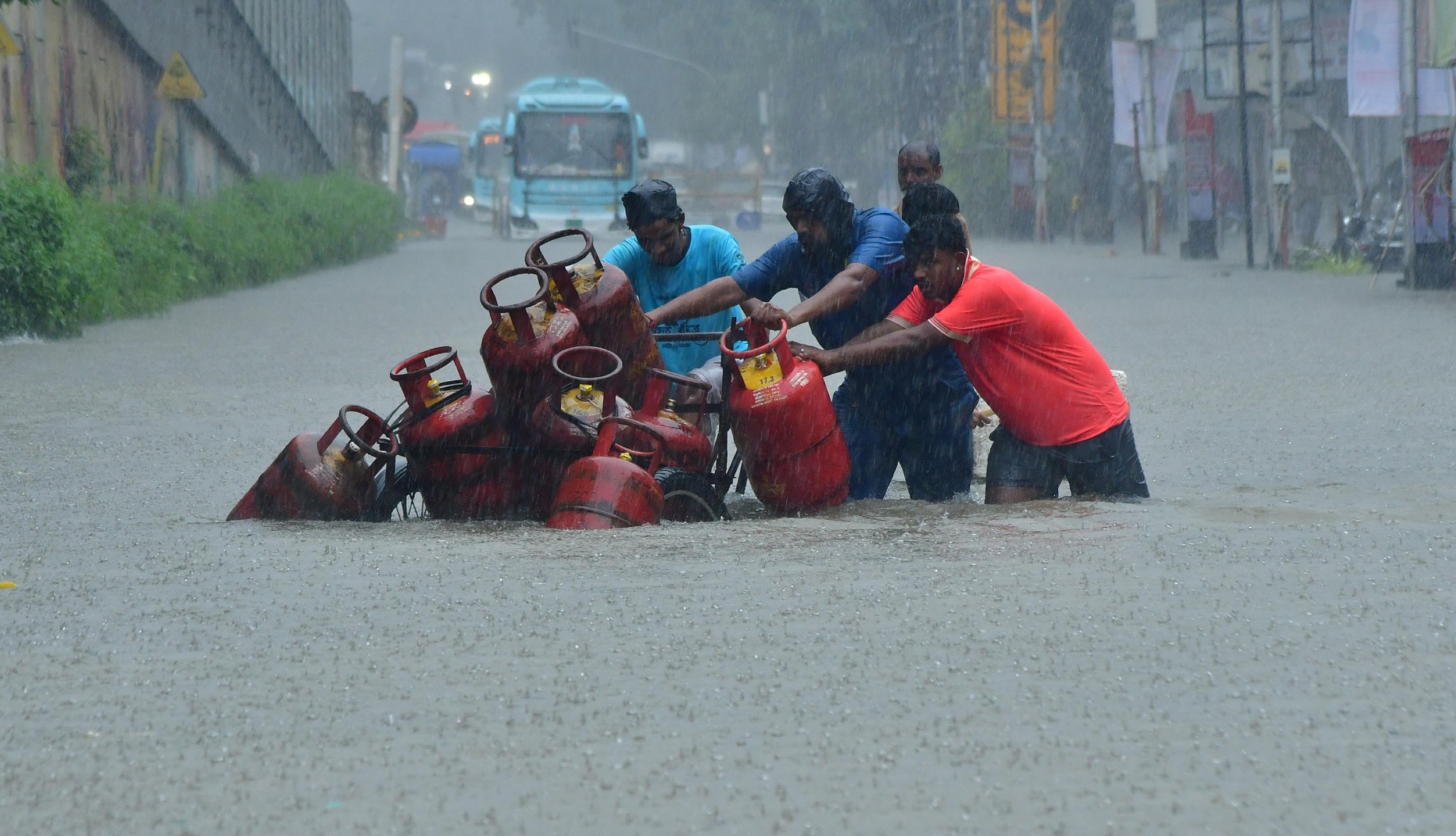 Cloudbursts: what are the 'rain bombs' hitting India and Pakistan?
Cloudbursts: what are the 'rain bombs' hitting India and Pakistan?The Explainer The sudden and intense weather event is almost impossible to forecast and often leads to deadly flash-flooding and landslides
-
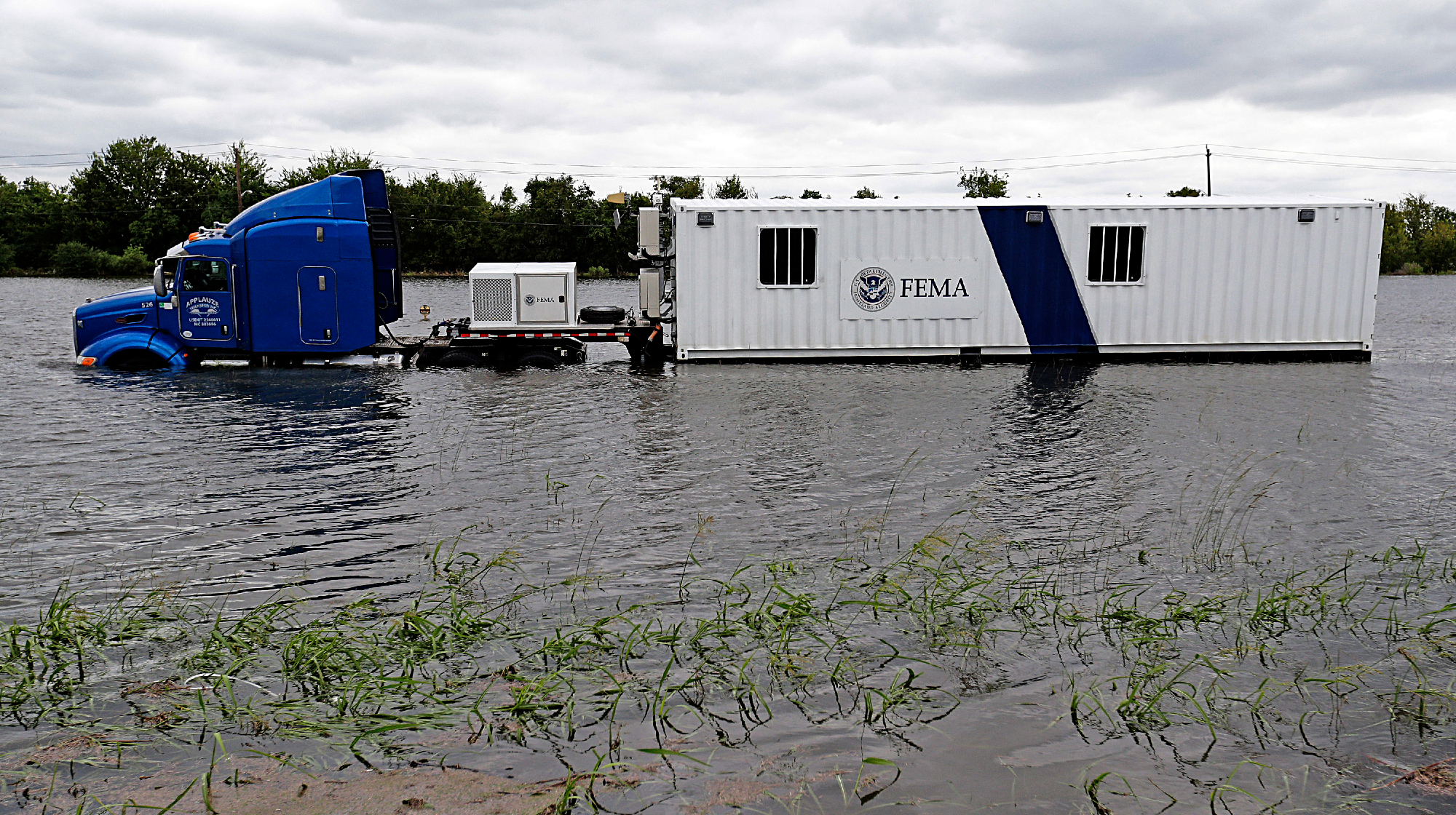 FEMA Urban Search and Rescue chief resigns
FEMA Urban Search and Rescue chief resignsSpeed Read Ken Pagurek has left the organization, citing 'chaos'
-
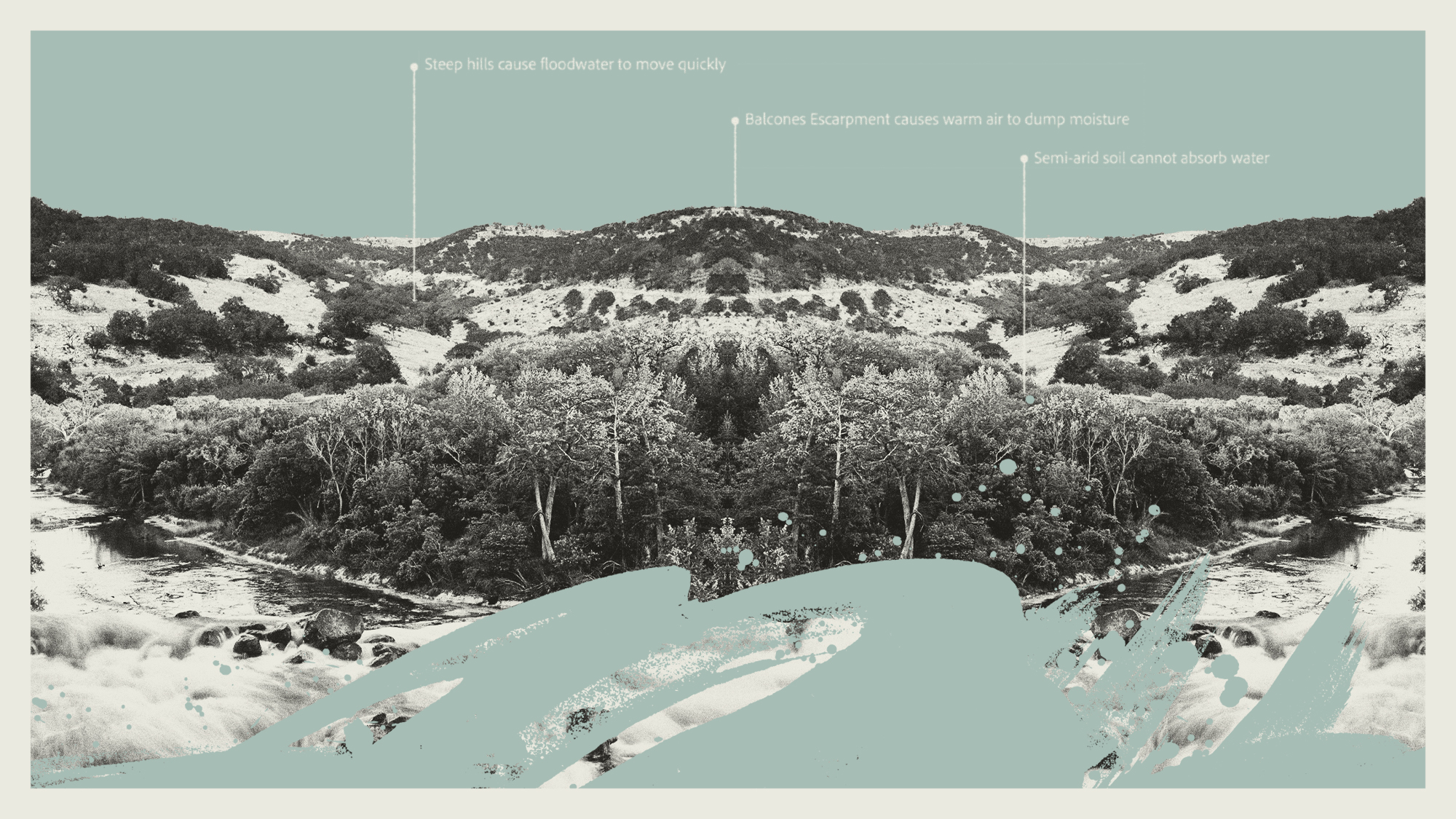 Why are flash floods in Texas so deadly?
Why are flash floods in Texas so deadly?Today's Big Question Over 100 people, including 27 girls at a summer camp, died in recent flooding
-
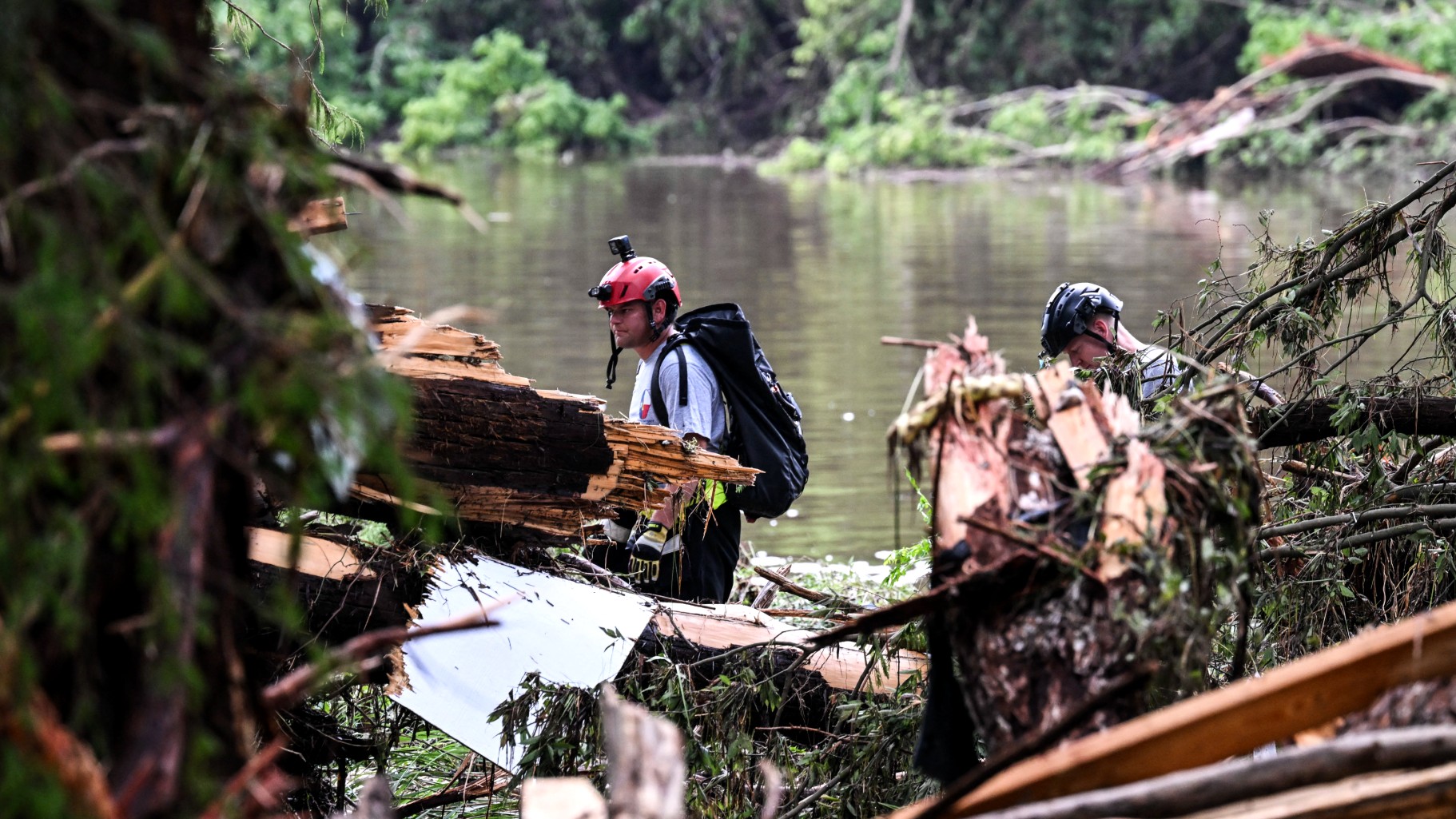 Search for survivors continues after Texas floods
Search for survivors continues after Texas floodsSpeed Read A total of 82 people are confirmed dead, including 28 children
-
 Parts of California are sinking and affecting sea level
Parts of California are sinking and affecting sea levelUnder the radar Climate change is bringing the land to the sea
-
 What are Trump's plans for the climate?
What are Trump's plans for the climate?Today's big question Trump's America may be a lot less green